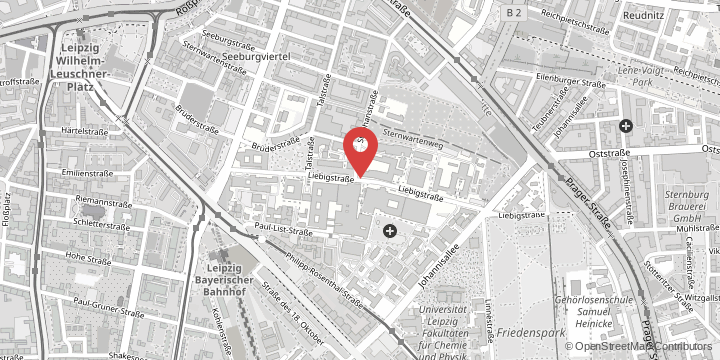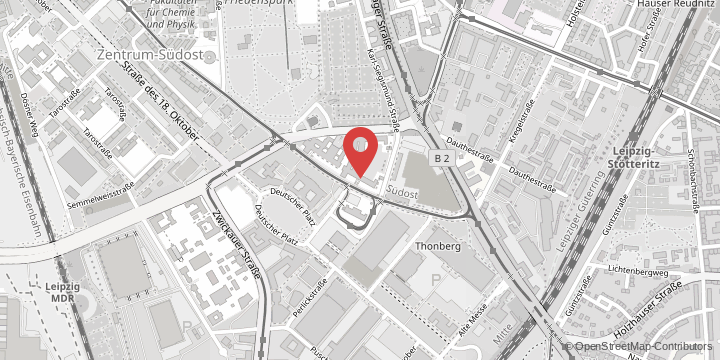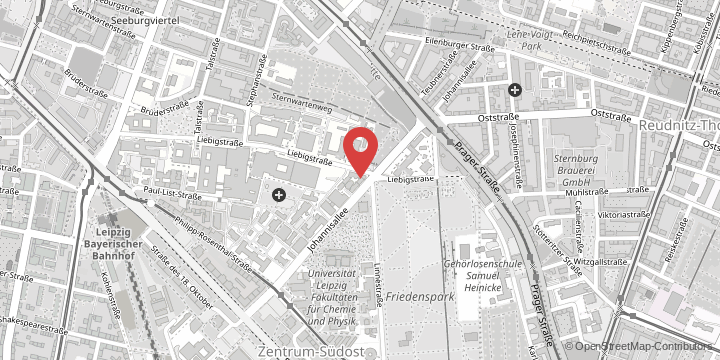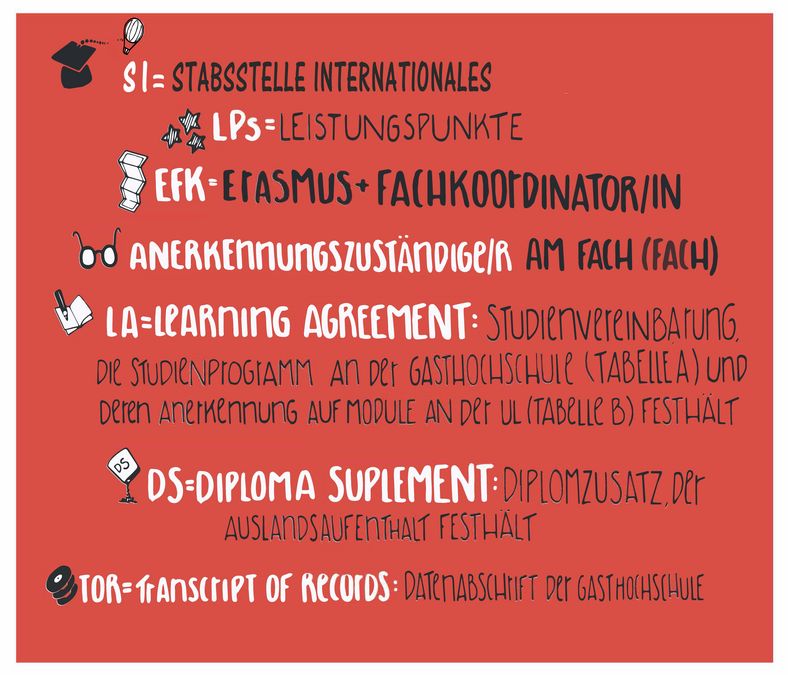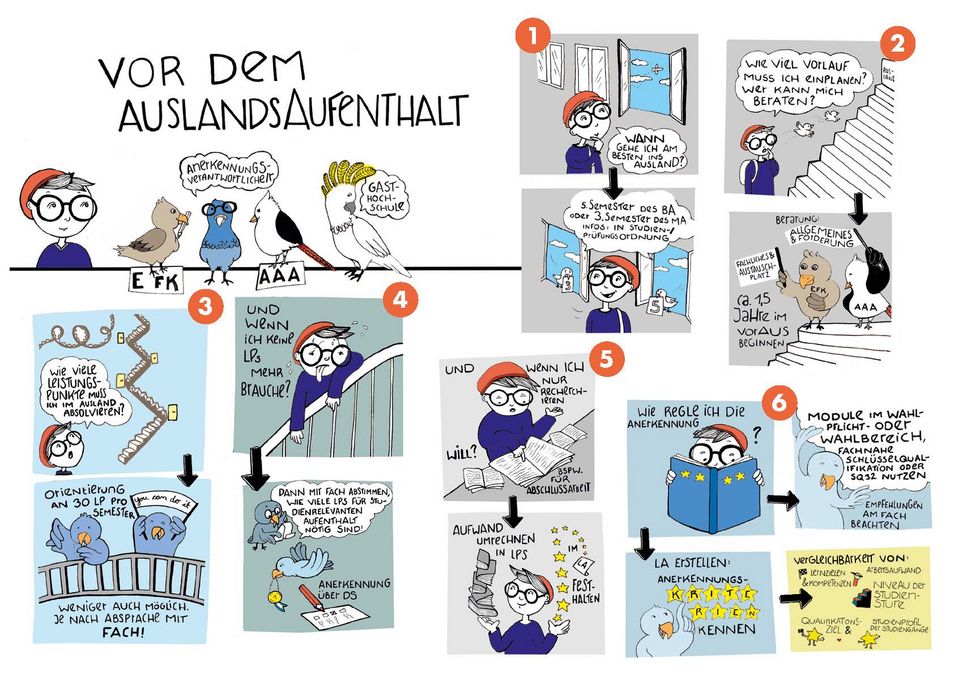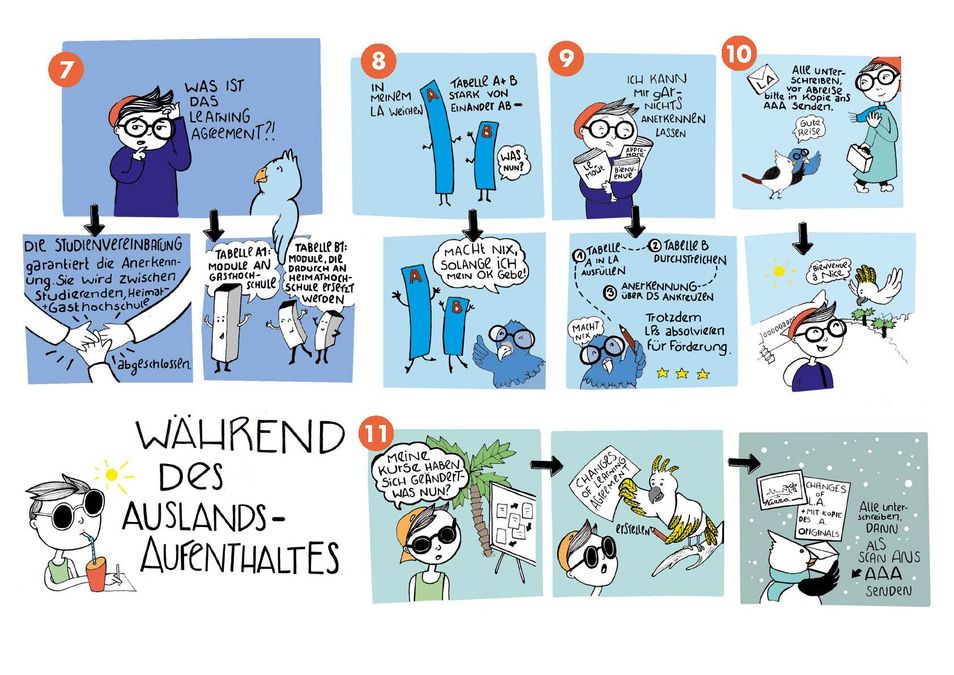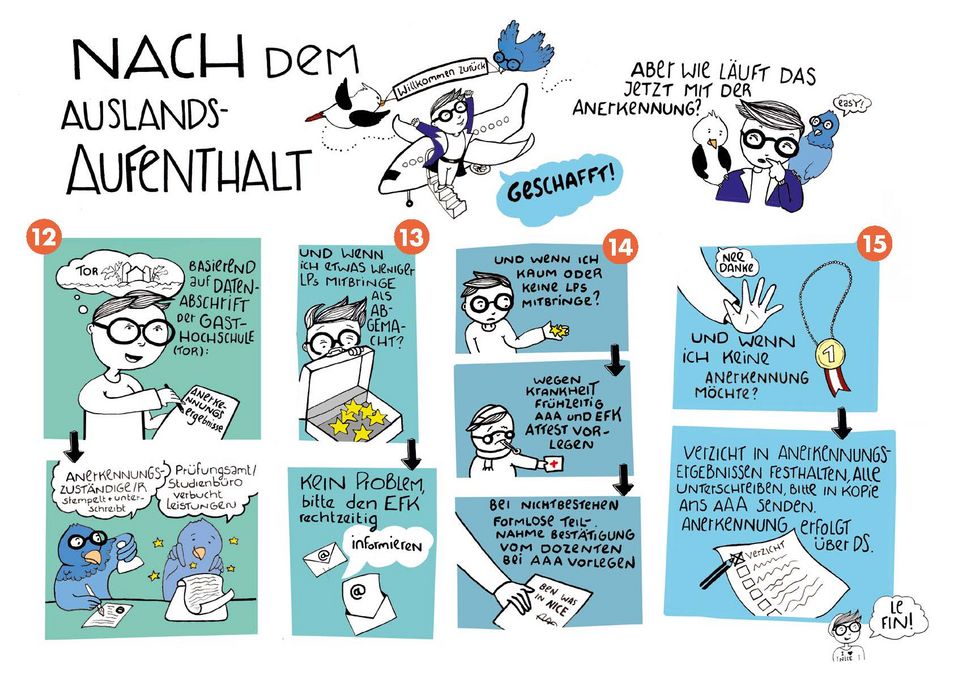Are you considering integrating a semester abroad into your studies, but unsure of where you want to go? The International Centre will give you tips on how best to prepare yourself for your semester abroad, how to fund your stay, and how to ensure that your academic achievements will be recognised back here in Leipzig.
Do you want to apply for one of our study exchange places or go abroad independently as a free mover? If, on the other hand, you are interested in an internship abroad, then take a look here.
Please note: Depending on your nationality, visa and residence regulations may come into force at the partner university and/or in the partner country. Please inform yourself at least six months before the start of your trip at the responsible offices (partner university, foreigners authority in the destination country).
Exchange Places in Europe and Worldwide
We have exchange places at partner institutions in Europe and all over the world, giving you a variety of options. Regardless of what you choose, you can be sure that your semester abroad will be a valuable experience, both for your further studies in Leipzig and your future career.
Semester Abroad as a “Free Mover”
The advantage: You are free to choose your host university.
The disadvantage: Organising a period of study abroad as a “free mover” is usually more complicated and expensive. You will probably be required to pay tuition fees at the host university. Depending on the host country, this can result in considerable costs. It is also advisable to be prepared for stricter admission requirements (e.g. language tests).
We recommend that you start preparing for your stay abroad at least eighteen months in advance. This should give you enough time to stick to application deadlines at universities (and perhaps scholarship providers) and, if necessary, to apply for a visa.
Scholarships and Funding Opportunities
You can combine scholarships and other funding opportunities for a stay abroad with our university’s exchange programmes, or use them for your self-organised period abroad as a free mover. The DAAD’s “studieren weltweit” website offers useful background information (in German) on this subject.
PROMOS is a scholarship programme funded by the German Academic Exchange Service (DAAD) that provides financial support for study stays abroad that cannot be supported through other scholarship programmes. PROMOS scholarships are given on a merit basis according to the funding available.
In addition to study stays abroad, the programme can also provide funding for doing internships, writing your final thesis and going on study trips abroad.
Requirements
You are enrolled as a degree-seeking student at our university:
- bachelor’s programme: starting in the third semester of study
- master’s programme: starting in the first semester of study with at least one on-campus semester at Leipzig University if you are in an international master’s programme
- doctoral researchers cannot receive funding in this programme.
Your study stay abroad:
- will last at least two months,
- cannot be financially supported in the Erasmus+ programme and
- is not financially supported by other public funding organisations (e. g. scholarship programmes and foundations) other than BAföG (German Federal Training Assistance Act) or the Deutschlandstipendium.
Students who are citizens of other countries cannot receive financial support for stays in their country of origin.
Support
The funding amounts depend on the destination country. The scholarship is made up of monthly instalments and a travel allowance. Your tuition fees will not be paid.
PROMOS support is limited to one stay abroad each year and a total of six months per study cycle. The maximum funding duration per stay is four months. The PROMOS scholarship is tied to calendar years. If your stay abroad will extend into the next calendar year, then support is only possible until 28 February.
Together with the International Centre, students with a degree of disability (Grad der Behinderung) of at least 50 or with a chronic illness can submit a request for additional funds to the DAAD. These top-up amounts are paid in addition to the regular funding amounts. Please contact the PROMOS project coordinator by email at an early point in time for more information and to submit the request.
There are two application periods each year for the PROMOS scholarship:
- for stays that start between January and July:
1 November–1 December of the previous year - for stays that start between July and December:
1 May–1 June
Applications for a PROMOS scholarship cannot be accepted if they are submitted outside of these application periods.
To apply, register in the portal for study stays abroad with your university login and select the form “PROMOS Application”. Fill out the online application carefully and upload the following documents as a PDF file:
- CV in table format
- Certificate(s) of enrolment from Leipzig University for the entire period of your stay abroad (without the master data sheet and BAföG certificate)
If you do not yet have the certificate of enrolment for the following semester, then please first submit your certificate of enrolment for the current starting semester. - Transcript of records
You can obtain a transcript of records from the Examination Office. You can also submit a print-out of the transcript of records from AlmaWeb if your work to date is all included. If you are already in a master’s programme, please also upload a copy of your bachelor’s degree certificate including an overview of your marks. - Describing your plan for the stay abroad
On a maximum of two pages, describe in German (international students can submit the description in English) why you are applying for a study stay abroad at your desired university. What specific plans do you have for your study stay abroad? What courses do you want to attend with which goal? Draw a connection between your study stay abroad and your studies at Leipzig University. Clearly show your motivation for the study stay abroad. - Language certificate for the language of instruction
If the language of instruction is only German and no additional foreign language proficiency is necessary, then still please submit a language certificate for English. You do not need to submit proof of proficiency in your native language. Depending on the situation, there are various ways to show proof of your language proficiency:- You can complete a central standardised language test. The tests take place regularly in the Language Center.
- If you are currently taking a language course at the Language Center, you can have your current language level confirmed by the Language Center using the language certificate form.
- If you are studying in the language of instruction, you can have your lecturer in the subject confirm your current level of language proficiency on the language certificate form.
- If you already have documentation of your language proficiency level (e. g. with courses, study stays abroad or your Abitur) that was issued no more than two years ago, then you can submit this to the Language Center to have it transferred to the language certificate form. Only proof recognised by the Language Center will be accepted.
- If you have completed a standard test that was sat no more than two years ago, you can submit this as a language certificate.
- Proof of your application to the host university or admission to study at the host university
- Course plan that includes the courses you intend to attend while abroad
We will send you a personal confirmation message after we have checked to make sure your application is complete.
Review of Your Application and Nomination
Your complete application will be read by two reviewers from your discipline or a related field. The following selection criteria and weighting will be used:
- academic achievements (40%)
- personal aptitude, extracurricular qualifications and other activities (10%)
- how meaningful the planned stay abroad is in relation to your studies thus far (30%)
- language skills necessary to carry out the stay abroad (20%)
Starting around six weeks after the application deadline, emails will be sent out stating the results of the application process.
Do you want to study, conduct research, do an internship or learn a language abroad? The German Academic Exchange Service (DAAD) offers a wide range of scholarships. You can find comprehensive information on scholarships for students (Bachelor, Diploma, Examination) and graduates (Master, Doctorate) in the DAAD's scholarship database (website in German).
The German-American Fulbright Commission supports German students and graduates who wish to study for short or extended periods at a US university and who are interested in promoting cultural exchange between Germany and America. You can find an overview of what the German-American Fulbright Commission offers for stays in the US on its website.
AuslandsBAföG (International BAföG) is one way of supporting periods of study abroad. The International BAföG grant rates are higher than those you receive for studying in Germany. This means that students who do not receive BAföG funding in Germany are often still eligible for funding during their period abroad.
You can apply for International BAföG if you are planning a period of study of at least one semester or six months. Please note that a travel allowance can be granted for a maximum of one year of your stay. It is possible to cover up to 4600 euros of your proven tuition fees.
Good to know: You can combine International BAföG with a range of scholarships. The Federal Ministry of Education and Research provides more detailed information about International BAföG.
What requirements do I have to meet?
People who are entitled to standard German BAföG – but also many who aren’t – can apply for International BAföG. To be eligible, you must have spent at least two semesters studying in Germany before going abroad. It is also important that at least part of your semester(s) abroad will count towards your studies.
How do I apply for International BAföG?
Apply at least six months before the start of your period abroad. Depending on your country of destination, there will be a certain international office responsible for your grant application. This means you have to submit your application for International BAföG to the relevant international office.
You receive your International BAföG certificate from our International Centre.
What happens after the semester abroad which qualified for BAföG?
You can continue to receive BAföG funding within your standard period of study. If spending a semester abroad means you take longer to finish your studies, we recommend that you apply for a leave semester for the time you spend abroad. International BAföG can still be claimed during a leave semester. In such cases, your period abroad will not count towards your standard period of study and your maximum funding period.
Foundations
There are various foundations that support periods abroad during a bachelor’s or master’s degree. Funding is usually based on specific subjects, countries or regions. The foundation index maintained by the Association of German Foundations provides a useful overview of the funding sources.
Student loans and education funds
In Germany, student loans are for a limited period of time and are low-interest. You can apply for a loan regardless of your (or your parents’) income and assets. You can apply for a student loan in addition to International BAföG.
The Federal Ministry of Education and Research provides more detailed information about student loans and the Bildungskredit programme.
Recognition of Credits Earned Abroad
Do you want to make sure that credits you earn abroad will count towards your studies back in Leipzig? Please discuss your plans with your subject coordinator before going abroad.
The chairperson of your department's examination board or your Erasmus+ subject coordinator will decide on whether to recognise any credits earned abroad.
Depending on the degree programme, the following recognition options exist:
-
Recognition in the core subject based on the official recognition criteria
-
Flexible recognition in the elective area
-
Recognition as a key qualification (SQ), if applicable on your degree programme
-
Recognition as “international experience”/interdisciplinary key qualification: You can have ten credits recognised for academic achievements outside your core subject on key qualification (SQ) module 32 upon submitting a passed examination; please address your questions to email.
We recommend that you aim for 30 ECTS credits per semester abroad.
Your Erasmus+ subject coordinator or your scholarship provider will inform you on how many credits you need for your subject. In order to receive the necessary support, you should make sure that you bring the agreed number of credits with you when returning from abroad.
As soon as you have been accepted for an exchange place, please discuss your intention to study abroad with the person responsible for your subject. You will need to contact your Erasmus+ subject coordinator or the recognition officer.
We recommend that you draw up a study agreement/learning agreement. The agreement documents show which courses you will take at the partner university and how they might be recognized. For the recognition itself, after your stay abroad, please submit a transcript of records from the partner university to the person responsible for recognition, who will provide you a form for recognition. You present this form to the study/examination office of your subject, which transfers the corresponding modules to your degree program.
Learning Agreement for Erasmus+ scholars in Europe
Learning Agreement for Erasmus+ scholars worldwide
Go to our Erasmus+ funding website for further information to draw up the learning agreement.
And please note the recognition on earning credits abraod on the Hochschulrektorenkonferenz (HRK) website.
Linguistic Preparation
For you to be able to participate actively in the seminars and lectures at your host university, it is important that you are proficient in the language of instruction. You will need to prove your language skills when applying for an exchange place. The following options will help you to meet the language requirements.
- Language courses alongside your studies offered by Leipzig University’s Language Center
- Preparatory language courses at Leipzig University’s Language Institute
- Online Linguistic Support (OLS) prior to an Erasmus+ placement
Please also note our information on language courses abroad.
When applying for an exchange place worldwide, you must prove your language skills for the language of instruction. Your Erasmus+ subject coordinator can tell you whether you also need such proof when applying under the Erasmus+ programme in Europe.
You can prove your ability in the language of instruction by providing a relevant language certificate or having this form filled in. For the latter, you will need to pass a test at the Language Center. There are a number of test dates for the languages English, French, Spanish and Portuguese. If you pass the test, you will be given a certificate. The Language Center website provides information on other language courses.







